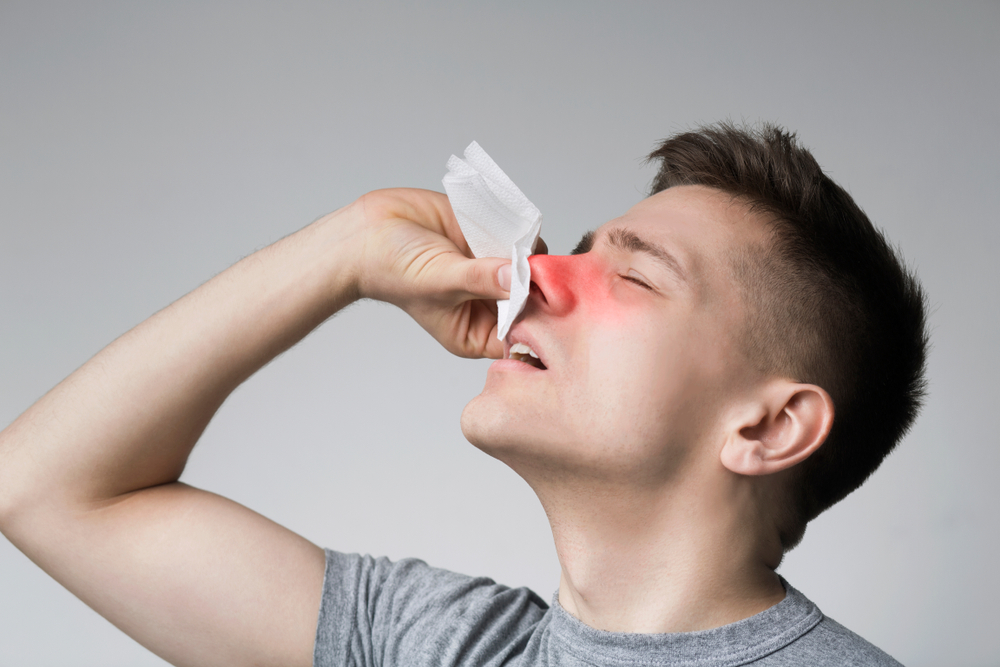Nasal Polyps: Symptoms, Causes, and Home Remedies

Introduction:
The small painless non-cancerous growths inside the nasal cavity can sometimes be troublesome by affecting your sleep patterns. They can sometimes develop inflammation from irritants (like- dust, smoke, cold, smell of allergens) and swell up, sometimes blocking the nasal passages and sinuses.
Who is at risk of getting nasal polyps?
Nasal polyps generally develop from long-term exposure to irritants or inflammatory conditions and generally affect people in their 30s or 40s. They occur usually on both sides of the nose. A growth on only one side of the nose requires medical attention as it could be cancerous.
The related causes of inflammation that may be present include:
- Asthma
- Allergic Rhinitis, also called hay fever
- Chronic sinusitis
- Cystic fibrosis
- Repeated infections
- Obstructive causes of DNS
- Aspirin sensitivity
- Vitamin D deficiency
- Elevated IgE level
What are the symptoms of nasal polyps?
Small polyps go unnoticed as they generally do not cause any symptoms. But, as they become larger they start leading to complications such as:
- Runny nose
- Constant feeling of stuffiness
- Dripping behind the nose
- Problems with smell
- Problems with taste
- Headache, Ear fullness & pain
- Pain in face
- Pain in teeth (upper teeth)
- Snoring and sleep problems
- Nasal bleeds (Epistaxis)- warning signs for cancerous growth.
When should you visit a doctor?
You can visit your doctor and explore solutions if the symptoms bother you and affect your daily functioning. You should also visit the doctor if symptoms of inflammation last more than 10 days. You should visit a medical care facility immediately if you have any serious symptoms like:
- Serious problems with breathing like lack of breath
- A sudden increase in symptoms with fever
- Problems with vision and painful eye movements
- Swelling around the eyes
- Severe headache or difficulty tilting your head
- Recurrent Epistaxis
Complications: - Nasal polyps causes blockage of normal airflow & fluid drainage with chronic inflammation.
Complications-
- Obstructive sleep Apnoea (OSA)
- Asthma flare ups
- Sinus infection
How are nasal polyps diagnosed?
Your doctor may ask about your health history and about allergies asthma etc. He/she will then look inside your nose with a small fine flexible tube with a tiny camera called a nasal endoscope. Sometimes, you may be asked to get a CT scan of your nasal cavity and sinuses as well.
How are nasal polyps treated?
Based on the condition and whether you require treatment, your doctor may suggest the following in advanced cases:
- Nasal sprays containing steroids having negligible systematic side effects.
- Oral steroids (Please note that consuming steroids can seriously harm your health if done without following the exact advice of your doctor and ensuring you stop the dosage as soon as your doctor recommends you to)
- Endoscopic sinus surgery (FESS) for blocked sinuses with polyps needed surgical removal & widening of sinuses. Post-operative nasal steroid spray is must.
How can I manage nasal polyps at home?
The best method is prevention by:
- Managing your asthma and allergies
- Avoiding irritants in the air you breathe
- Practicing good hygiene
- Using a humidifier, steam inhalation
- Doing a saline rinse
Other methods commonly suggested include:
- Drinking a lot of water
- Using steam inhalers and humidifiers
- Keeping your head propped up when you sleep
- Anti-inflammatory natural substances like tea tree or eucalyptus oil, turmeric, bromelain from pineapples, etc.






